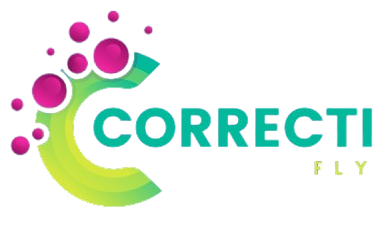Are you searching for fresh and diverse ways to express joy when sharing exciting news? The common phrase “happy to announce” can become repetitive, and variety can significantly enhance how you engage with your audience.
Whether you’re delivering news about a promotion, an engagement, or the launch of a new project, utilizing different expressions can convey your excitement more effectively.
Let’s dive into 15 alternative phrases that can replace “happy to announce,” along with context on how and when to use each one effectively.
1. Pleased to Declare: A Formal Touch for Official Announcements
Using “pleased to declare” adds a formal and respectful tone to your communication. It’s perfect for significant announcements in professional settings, such as corporate statements or public declarations. It conveys a sense of pride and seriousness.
Example: A CEO might say, “I’m pleased to declare the opening of our new headquarters,” highlighting the importance of the occasion.
When to Use:
- Formal events, such as annual meetings.
- Ceremonial announcements.
- Significant corporate news.
2. Thrilled to Proclaim: Perfect for Life-Changing Moments
“Thrilled to proclaim” communicates a high level of excitement and enthusiasm. This phrase is ideal for announcements that celebrate transformative life events, both personal and professional.
Example: New parents might exclaim, “We’re thrilled to proclaim the arrival of our baby boy!” capturing the joy of the moment.
Best Applications:
- Personal milestones like births or engagements.
- Major business victories.
- Celebratory events that create buzz.
3. Excited to Reveal: Building Anticipation for New Developments
“Excited to reveal” implies eagerness and builds anticipation. This phrase works well when you want to announce something new or unexpected that your audience has been waiting for.
Example: A couple could say, “We’re excited to reveal our upcoming move to Paris!” This statement adds a sense of surprise and positive energy.
Ideal Scenarios:
- Product launches or new features.
- Major career changes.
- Surprising updates that engage your audience.
4. Delighted to Disclose: Warm and Heartfelt Announcements
“Delighted to disclose” adds a friendly and heartfelt touch to your news. This phrase promotes positive feelings and makes it suitable for sharing heartwarming updates.
Example: At a family gathering, someone might announce, “We’re delighted to disclose that we’re expecting our second child!” This phrase creates an intimate connection with the audience.
Use This Phrase For:
- Personal life updates.
- Community news that requires a touch of warmth.
- Good news that benefits others.
5. Overjoyed to Make Known: Sharing Emotionally Significant News
“Overjoyed to make known” conveys deep happiness and significance. This expression is excellent for heartfelt moments and announcements that carry emotional weight.
Example: “We are overjoyed to make known our daughter’s acceptance into her dream university!” highlights the pride and joy within the family.
Best Use Cases:
- Important family milestones.
- Significant achievements or recognitions.
- Announcements with a personal touch.
6. Ecstatic to Publicize: High-Energy Announcements
“Ecstatic to publicize” is a bold phrase that conveys vibrant excitement. It’s perfect for announcements that are significant enough that you want the world to know!
Example: An artist might share, “I’m ecstatic to publicize my new exhibition opening next week!” showing their pride and enthusiasm for their work.
Situations for Use:
- Major product launches.
- Personal achievements that are exciting.
- Announcements that aim to create buzz.
7. Elated to Broadcast: Announcing Major Accomplishments
“Elated to broadcast” shares joy and pride in a notable achievement. This phrase is suitable for announcements that mark significant successes or milestones.
Example: A sports team might announce, “We’re elated to broadcast our championship win!” emphasizing the excitement of the moment.
Good Contexts Include:
- Team achievements in sports or business.
- Awards or recognitions.
- Public service announcements about successes.
8. Joyful to Publish: Celebrating Creative Endeavors
“Joyful to publish” expresses happiness, especially in the context of sharing creative works. It’s ideal for authors, artists, or creators announcing their new projects.
Example: An author could say, “I’m joyful to publish my latest novel after years of hard work!” capturing both achievement and celebration.
Use This For:
- Announcing new releases or projects.
- Sharing artistic or research endeavors.
- Publicizing works that come from personal passion.
9. Cheerful to Inform: Brightening Up Good News
“Cheerful to inform” is an upbeat and friendly way to share positive news. This phrase enhances the mood of your announcement and is great for casual or informal settings.
Example: Someone might say, “We’re cheerful to inform you that our community picnic will be hosted at the new park next month!” This greeting makes people feel excited about the event.
Great Situations for Use:
- Community gatherings or local events.
- Informal workplace updates.
- Family and friends news that’s light-hearted.
10. Enthusiastic to Share: Conveying Passion and Engagement
“Enthusiastic to share” invites your audience to feel your excitement. This phrase communicates a sense of passion, making your announcement more engaging.
Example: A teacher might declare, “I’m enthusiastic to share that our science project won first place in the competition!” This framing encourages celebration and collaboration among students.
Best Applications:
- Educational achievements and classroom updates.
- Exciting developments within a team.
- Personal news that invites community interest.
11. Thrilled to Share: A Classic Yet Exciting Option
“Thrilled to share” is a classic expression that still resonates strongly. This phrase radiates excitement and is versatile for various contexts, both personal and professional.
Example: A parent might announce, “We’re thrilled to share that our son has graduated from high school!” This statement conveys pride and joy, making the achievement feel more significant to everyone involved.
Recommended Contexts for Use:
- Celebrating personal milestones like graduations or promotions.
- Professional achievements in company meetings.
- Sharing good news that brings together friends and family.
12. Proud to Present: Highlighting Significant Contributions
“Proud to present” conveys a strong sense of pride and honor while sharing important news. This phrase is excellent for formal or significant announcements that deserve emphasis.
Example: A teacher might say, “I’m proud to present our students’ artwork at the annual gallery event!” This ensures that both the students and their efforts are acknowledged.
Situational Contexts for Use:
- Formal presentations at conferences or events.
- Major product launches in a business setting.
- Announcing important projects or team efforts that reflect hard work.
13. Excited to Unveil: Creating Buzz Around New Discoveries
“Excited to unveil” brings a sense of drama and intrigue to your announcements. This phrase is perfect for revealing new ventures or projects that have been planned behind the scenes.
Example: A tech company might say, “We’re excited to unveil our groundbreaking new software at the tech conference this year!” This statement enhances curiosity and anticipation around the launch.
Best Situations for Use:
- Product launches or new technology revelations.
- Major changes in a company strategy.
- Artistic unveilings, such as gallery shows.
14. Grateful to Share: Acknowledging Your Audience
“Grateful to share” expresses appreciation along with your announcement. This phrase emphasizes gratitude, making the news feel inclusive and affirming for your audience.
Example: A community leader might announce, “I’m grateful to share that our fundraising efforts have exceeded our goal thanks to your support!” This phrasing helps recognize the contribution of others.
Ideal Uses:
- Announcing milestones reached through teamwork.
- Celebrating collective community efforts.
- Sharing personal achievements that involve others’ support.
15. Honored to Present: Signifying Respect and Importance
“Honored to present” conveys a sense of prestige and respect, particularly crucial when sharing significant news. This phrase indicates that the announcement is one of importance and worth celebrating.
Example: At a ceremony, a representative might say, “I am honored to present the award for Community Service to a deserving recipient.” This phrasing adds weight and significance to the announcement.
When to Use:
- Formal recognition ceremonies.
- Presenting awards or honors.
- Announcing partnerships or collaborations that reflect values.
Conclusion: Enrich Your Announcements with Diverse Expressions
Enhancing the way you communicate good news can lead to more engaging and heartfelt interactions. Expanding your vocabulary with these additional phrases allows you to tailor your announcements more specifically to the context and audience.
From “excited to unveil” to “grateful to share,” each expression adds its own flavor to your messages. By considering the tone and significance of your announcement, you can choose the phrases that best resonate with the emotions and excitement you wish to convey.
Explore these 15 alternatives to “happy to announce” to transform your future communications into memorable moments that celebrate achievement and joy!
Frequently Asked Questions (FAQs)
1. Why should I use alternatives to “happy to announce”?
Using alternatives adds variety and freshness to your announcements, making them more engaging and relatable. Different phrases can better convey the emotions and significance of your news, helping you connect more effectively with your audience.
2. In what contexts should I use these alternative phrases?
The phrases can be used in various contexts, including personal milestones (like engagements or graduations), professional announcements (like product launches or company expansions), and community updates. Choose the phrase that feels most appropriate for the tone and significance of the news you’re sharing.
3. Can these phrases be used in formal settings?
Yes, many of the alternative phrases, such as “pleased to declare” or “honored to present,” are suitable for formal settings. They can be particularly effective during speeches, presentations, or official communications where respect and professionalism are necessary.
4. How do I choose the best phrase for my announcement?
Consider the nature of the news you are sharing and your audience. If your announcement is celebratory, phrases like “thrilled to share” or “overjoyed to make known” may be appropriate. For more formal or prestigious announcements, consider “pleased to declare” or “honored to present.”
5. Can I mix and match these phrases in my announcements?
Absolutely! Feel free to combine different phrases to illustrate your excitement and personalize your announcements. For example, you could start with “I’m thrilled to share” and follow up with a specific detail to make your announcement truly unique.
6. Are there any phrases I should avoid in professional settings?
While many of the phrases listed are versatile, it’s essential to consider your audience. Terms that may come off as overly casual (like “cheerful to inform”) might not be appropriate in highly formal business contexts. Opt instead for more formal phrases in such situations.
7. How can I make my announcements more engaging?
To enhance your announcements further, consider adding personal anecdotes, visuals, or compelling stories related to the news. Mixing in enthusiasm and heartfelt expressions will resonate more with your audience, making them feel involved and invested in the message.
Must Read:
- Roll Call Or Role Call: What’s The Difference?
- Adjectives Start with J: Words That Start with the Letter J
- What Does WYLL Mean? Decoding the Viral Slang Term
- WTV Meaning on Snapchat Decode This Popular Slang Term

